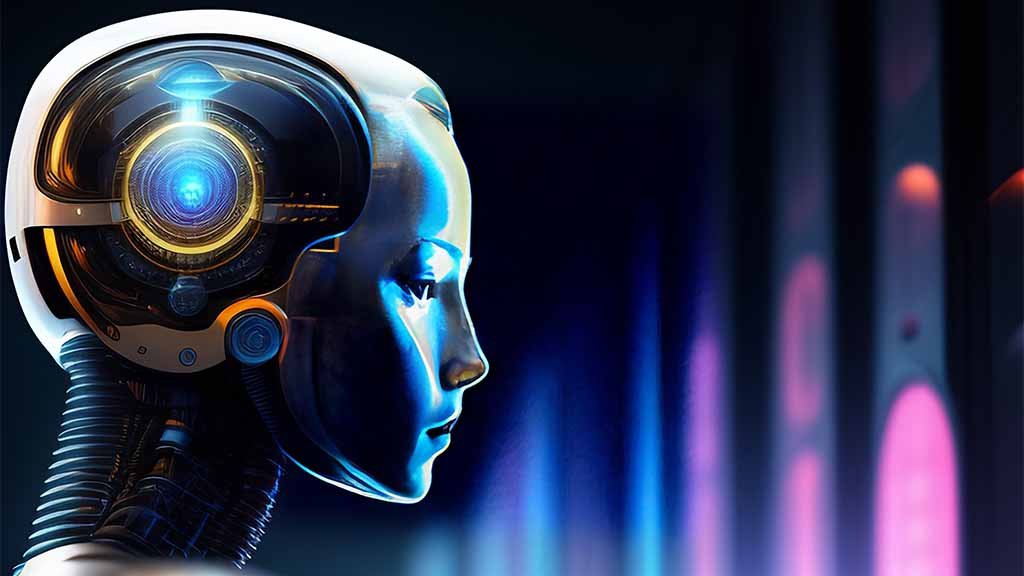
As we ride the crest of the AI wave, it’s impossible to overlook the transformative impact of Artificial Intelligence on every facet of our lives. From the way we work to how we play, AI’s tendrils have extended into every industry, signaling a revolution that’s not just coming—it’s already here. By 2033, the global AI market is expected to have undergone exponential growth, shaping a future that’s both exhilarating and, for the unprepared, intimidating.
Understanding the AI Revolution
The concept of Artificial Intelligence is not new, but its capabilities have skyrocketed in recent years. We’ve seen AI evolve from simple machine learning algorithms to sophisticated systems capable of deep learning, natural language processing, and autonomous decision-making. This growth is not just theoretical; it’s reflected in the burgeoning AI market size, which is predicted to grow at an unprecedented rate over the next decade.
Market Growth Trajectory
The numbers are staggering. Industry experts forecast the global AI market to multiply many times over, with some estimates placing its value well into the trillions by 2033. This isn’t just down to larger companies adopting AI technologies; startups are also playing a crucial role, innovating at the edges and pushing the boundaries of what’s possible with AI.
Sectors Leading the Charge
No industry is left untouched by the AI wave. Healthcare, finance, automotive, and education are just a few sectors that are harnessing AI to not only improve efficiency but also to pioneer groundbreaking services and products. Healthcare, for instance, is leveraging AI for everything from diagnostic procedures to personalized patient care plans. In finance, AI is transforming how we manage risk, detect fraud, and personalize banking experiences.
The Impact on Jobs and the Economy
With great technology comes great responsibility, and the AI wave is no exception. As AI systems take on more complex tasks, there’s a palpable concern over job displacement. However, history teaches us that technology can be a net creator of jobs. The key lies in adaptability and lifelong learning. Economies that embrace AI and invest in the relevant skills and education will likely reap the benefits in terms of job creation and economic growth.
Navigating the Ethical Landscape
Artificial Intelligence is not without its ethical considerations. Issues around privacy, bias, and control are at the forefront of discussions about AI’s role in our future society. Companies and governments alike must navigate these concerns carefully, ensuring that AI’s growth is not just remarkable but also responsible and inclusive.
The Role of Data and Infrastructure
Data is the lifeblood of AI. The quality, quantity, and accessibility of data are critical factors driving AI innovation. Moreover, the infrastructure to support AI—be it cloud computing, edge computing, or the Internet of Things (IoT)—must be robust and secure to handle the increased load and complexity of AI processes.
Looking Ahead: Preparing for 2033
As we map the growth of the AI market, one thing is clear: preparation is key. Businesses must stay agile, governments must be forward-thinking, and individuals must remain curious and willing to learn. The AI wave isn’t just coming; it’s here, and it’s reshaping our world in real-time. The question is, are you ready to ride it?
By understanding the trajectory of AI’s growth, recognizing the industries at the forefront, considering the economic and job-related implications, and navigating the ethical landscape, we can prepare ourselves for a future where Artificial Intelligence is not a distant concept but a daily reality.
The AI Talent Wave
A significant part of the AI market’s growth can be attributed to the surge in demand for AI talent. By 2033, we can expect a thriving job market for AI professionals, including data scientists, machine learning engineers, and AI ethicists. Educational institutions are already revamping curricula to produce graduates equipped to meet this demand. The proliferation of online courses and bootcamps in AI and machine learning is democratizing access to AI education, ensuring a broader talent pool and fostering innovation from diverse perspectives.
AI and Global Connectivity
Artificial Intelligence also plays a pivotal role in enhancing global connectivity. With the advent of AI-driven translation services and communication tools, language barriers are becoming a thing of the past, enabling seamless collaboration across borders. This not only bolsters the market’s growth but also creates a more interconnected world economy.
Investment and Funding
Investment in AI is soaring, with venture capital firms and corporate investors betting big on AI’s future. Governments are also stepping up, recognizing the strategic importance of AI and allocating funds to research and development. This influx of capital is accelerating the pace of AI advancements and fueling the market’s expansion.
The Role of Regulations
As we look towards 2033, the role of regulations in the AI market cannot be overstated. Effective policy-making will be crucial in managing AI’s growth, ensuring fair competition, protecting consumers, and preventing the misuse of AI technologies. The balance between fostering innovation and maintaining regulatory oversight will be a delicate yet crucial task for lawmakers around the world.
AI’s Intersection with Other Technologies
Finally, the interplay between AI and other emerging technologies will significantly influence the market’s growth. AI’s integration with blockchain, augmented reality (AR), virtual reality (VR), and quantum computing is creating new opportunities and applications that we are only beginning to comprehend. These synergies are likely to generate new market segments and drive further growth.
In Summary
As we near 2033, Artificial Intelligence stands as a beacon of progress, innovation, and potential. Its market growth reflects the collective ambition of a society eager to embrace the future. With careful planning, ethical consideration, and a spirit of collaboration, the AI wave will not only be one of the most remarkable growth stories in history but also a catalyst for a smarter, more efficient, and more connected world.


